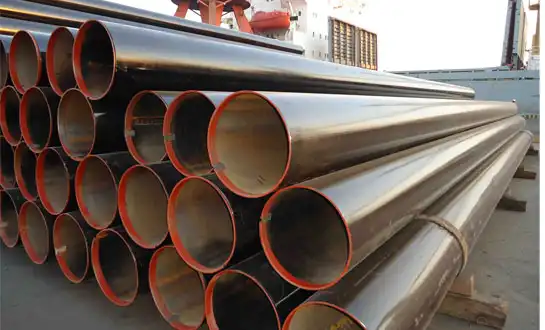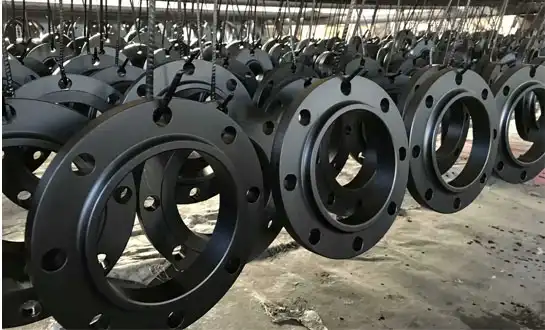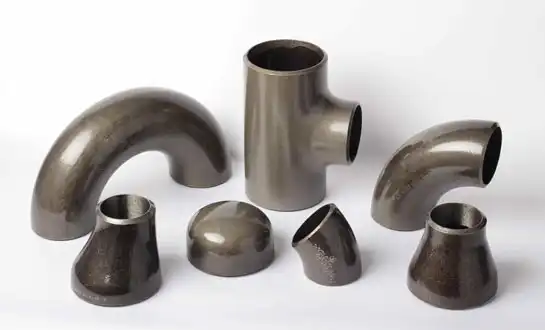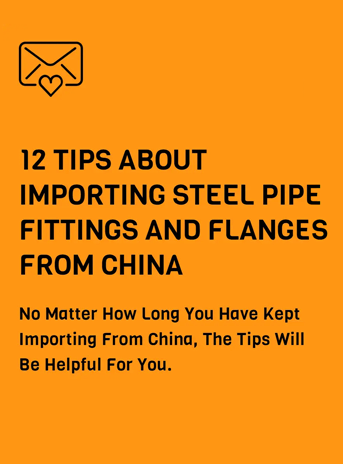Why EPC Contractors Prefer Custom Angle Pipe Bends?
It is harder than ever for Engineering, Procurement, and Construction (EPC) contractors to finish complicated industrial projects on schedule, under budget, and to the exact technical requirements. These professionals increasingly turn to custom angle pipe bends as strategic solutions that address multiple project demands simultaneously. Unlike standard off-the-shelf components, custom angle pipe bends offer precise angular configurations tailored to specific site conditions, equipment layouts, and operational requirements. If EPC companies spend money on specialized plumbing solutions, it makes installation easier, reduces the number of changes that need to be made on the job site, and makes the whole system work better. People like custom angle pipe bends because they make the most use of space, require less welding, and enhance flow characteristics while still following international regulations and standards.
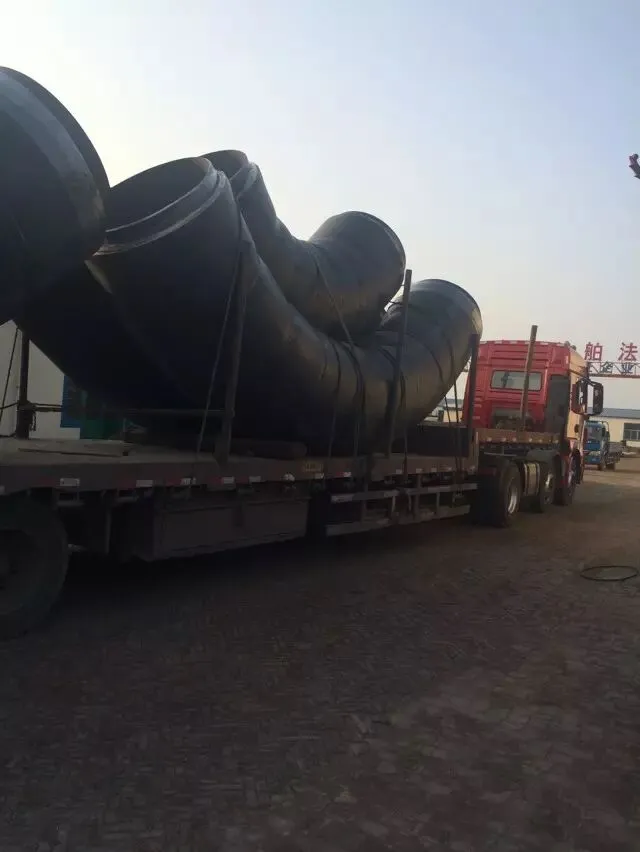
Project Efficiency and Schedule Optimization
Reducing On-Site Fabrication Requirements
EPC contractors managing large-scale industrial projects understand that on-site fabrication activities consume valuable time, resources, and labor while introducing quality control challenges. Custom angle pipe bends arrive at construction sites precisely manufactured to project specifications, eliminating the need for field cutting, fitting, and welding multiple standard components together. This kind of prefabrication cuts down on the number of experienced workers needed on site by a lot. This is because weather, safety rules, and logistical issues typically make fabrication tasks harder.When contractors specify custom angle pipe bends during the engineering phase, they transfer manufacturing activities to controlled factory environments where quality assurance processes ensure consistent results. There are fewer hot work permits and welding checks when there is less field manufacturing. It takes longer to finish jobs and more work to do this kind of stuff.
Accelerating Installation Timelines
Project schedules drive decision-making for EPC contractors who face contractual milestones and client expectations for timely commissioning. Custom angle pipe bends streamline installation sequences by reducing the number of individual components that must be handled, positioned, aligned, and joined. A single custom bend replacing three or four standard fittings eliminates multiple weld joints, each requiring fit-up time, welding execution, and non-destructive examination. This consolidation accelerates progress measurably, particularly in projects involving hundreds of piping connections. Making bespoke angle pipe bends with high accuracy also increases the chances of a successful first-time fit-up, which cuts down on rework cycles that throw off timelines.
Minimizing Field Coordination Challenges
Complex industrial facilities involve numerous engineering disciplines and construction trades working simultaneously in confined spaces. Custom angle pipe bends simplify field coordination by resolving potential interferences during the engineering phase rather than discovering conflicts during construction. When piping designers create detailed three-dimensional models incorporating custom angle pipe bends with precise angular specifications, they identify and resolve clashes with structural steel, equipment, and other systems before fabrication begins. This preventative method avoids the need for pricey changes to the field and delays in the plan that happen when normal parts can't handle what's happening on the job site.
Technical Performance and Design Flexibility
Optimizing Flow Characteristics for Process Efficiency
Process industries demand piping systems that minimize pressure drops and maintain flow uniformity to achieve operational efficiency. Custom angle pipe bends enable hydraulic optimization through precisely specified bend radii that reduce friction losses compared to standard components. EPC contractors working on projects involving energy-intensive pumping systems specify custom angle pipe bends with large radius configurations that create gradual directional changes minimizing flow disturbances. Engineers can balance construction expenses against operational energy savings throughout the life of the facility by being able to change the bend shape to fit different flow conditions.
Accommodating Spatial Constraints in Brownfield Projects
Brownfield expansions present unique challenges where new piping systems must integrate with existing equipment and structures in congested industrial environments. Custom angle pipe bends provide EPC contractors with design flexibility to navigate these constraints while maintaining code compliance. Standard piping components often force compromises in brownfield projects, requiring circuitous routing that increases material costs and maintenance complexity. Custom angle pipe bends with non-standard angles enable direct routing between connection points, minimizing pipe lengths while preserving clearances for operations and maintenance.
Meeting Specialized Material and Code Requirements
Industrial projects spanning oil and gas, petrochemical, and power generation sectors involve diverse material specifications and regulatory requirements. Custom angle pipe bends provide access to specialized materials including exotic alloys and corrosion-resistant metals that may not be available in standard configurations. When process conditions demand materials beyond common carbon steel grades, custom fabrication ensures that every component meets uniform material specifications. The fabrication documentation for custom angle pipe bends provides comprehensive traceability including heat numbers, mechanical test results, and non-destructive examination records that satisfy stringent quality assurance programs.
Cost Effectiveness and Value Engineering
Lifecycle Cost Analysis and Total Ownership Value
Sophisticated EPC contractors evaluate component selections through comprehensive lifecycle cost analyses that extend beyond initial purchase prices. Custom angle pipe bends often demonstrate superior total ownership value despite higher individual component costs. Custom angle pipe bends cut down on the number of weld joints, which lowers the cost of installation by cutting down on the cost of welding materials, labor, and checks. Fewer welds also make the system more reliable by getting rid of possible leak spots.When custom angle pipe bends optimize hydraulic performance, the resulting energy savings accumulate over decades of operation, often exceeding the incremental capital investment.
Value Engineering and Design Optimization
EPC contracts increasingly include value engineering provisions that incentivize contractors to identify cost-saving opportunities. Custom angle pipe bends are value engineering tools that lower the total cost of a pipe system by making the best use of materials and mixing building methods. During design development, EPC engineering teams evaluate opportunities to replace multiple standard components with single custom bends, quantifying savings in materials, welding, and installation labor. The collaborative design process between EPC contractors and custom fabricators determines the best bend configurations that meet performance needs while staying under budget and making it possible to manufacture.
Risk Mitigation and Schedule Certainty
Project risk management is a very important job for EPC contractors that have to meet contract obligations and performance guarantees. Custom angle pipe bends reduce the risks of schedule delays, quality problems, and cost overruns. The precision manufacturing and dimensional verification of custom components reduce field fit-up risks that cause rework and labor cost escalations. When contractors work with skilled custom fabricators early on in the project engineering process, they may get commitments for capacity and delivery timelines that help with overall project planning.
Conclusion
EPC contractors prefer custom angle pipe bends because these components deliver comprehensive advantages spanning project efficiency, technical performance, and economic value. For tough manufacturing projects, custom solutions are best because they can cut down on the time it takes to build, improve flow, get around space problems, and lower the long-term cost of ownership. Contractors get better results that meet customer expectations and increase project profitability by selecting bespoke angle pipe bends during the engineering stages.
FAQ
1. How early should EPC contractors engage fabricators for custom angle pipe bends?
EPC contractors should engage custom fabricators during preliminary engineering phases. Early cooperation allows for design optimization, validates that production is possible, and sets realistic delivery deadlines that custom angle pipe bends need for thorough technical evaluations and material procurement.
2. What documentation do custom angle pipe bends provide for project quality assurance?
Custom angle pipe bends include comprehensive documentation containing certified material test reports, dimensional inspection records, welding procedure specifications, non-destructive examination results, and traceability documentation linking components to specific material heats.
3. Can custom angle pipe bends accommodate field modifications if site conditions change?
While custom angle pipe bends are manufactured to precise specifications, experienced fabricators can accommodate reasonable field modifications. However, early detection of conflicts through detailed engineering minimizes modification needs, preserving the schedule benefits that custom components provide.
4. How do custom angle pipe bends impact overall project insurance coverage?
Custom angle pipe bends manufactured by qualified fabricators with appropriate certifications enhance project insurance profiles by demonstrating quality commitment and reducing field fabrication risks. Full documentation backs up warranty claims and shows that the code is being followed.
HEBEI RAYOUNG PIPELINE: Leading Custom Angle Pipe Bends Manufacturers for EPC Excellence
At HEBEI RAYOUNG PIPELINE TECHNOLOGY CO., LTD., we partner with EPC contractors worldwide to deliver custom angle pipe bends that transform complex project challenges into competitive advantages. As one of the leading pipes and fittings manufacturers with ISO 9001:2015 certification, we combine advanced manufacturing capabilities with deep engineering expertise to produce custom angle pipe bends that meet the most demanding specifications. Our comprehensive product range, backed by GOST-R and SGS certifications, includes buttweld steel elbows, reducers, flanges, and specialized custom angle pipe bends engineered for your exact requirements.Contact our technical team today at info@hb-steel.com to discuss how HEBEI RAYOUNG can support your next EPC project with custom angle pipe bends that deliver measurable value.
References
1. Construction Industry Institute. (2021). Best Practices for EPC Project Delivery and Execution. CII Publications.
2. Engineering News-Record. (2020). Global EPC Contractor Performance Analysis and Industry Trends. ENR Special Report.
3. International Association of Oil & Gas Producers. (2022). Piping Systems Design and Construction Guidelines. IOGP Report Series.
4. Project Management Institute. (2021). Construction Extension to the PMBOK Guide (4th ed.). PMI Publications.
5. Society of Petroleum Engineers. (2020). Facilities Engineering and Construction Management Handbook. SPE Technical Publications.
6. Woodward, D. G. (2019). Life Cycle Costing in Construction Projects: Theory and Practice. Wiley-Blackwell Engineering.

Need a quote? Want to see samples? Just say hello. We’re friendly. We’re fast. And we’re ready when you are.
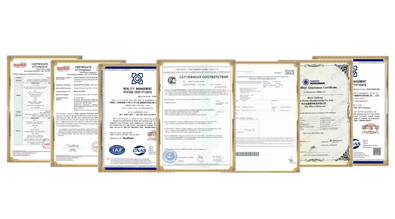
Welcome to RAYOUNG – Strong Pipes, Stronger Promise
